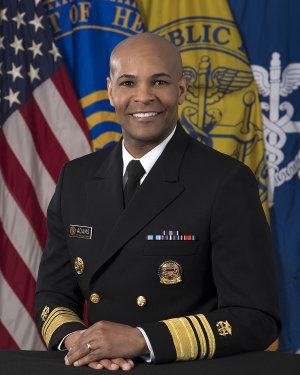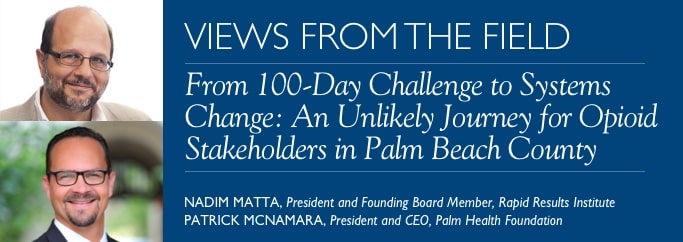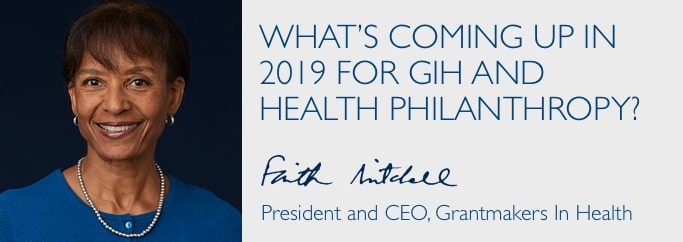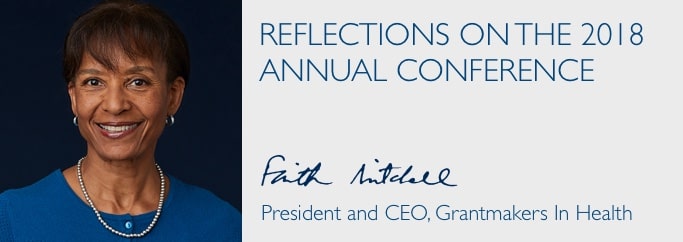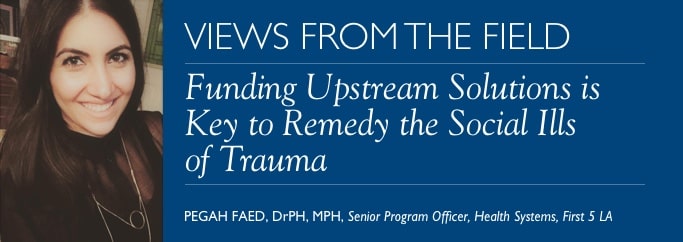Applying Lessons from the HIV/AIDS Epidemic to the Opioid Crisis
This webinar covered how issues of access, equity, funding, policy, and stigma have impacted governmental and philanthropic responses to public health epidemics. The speakers provided an update on the current data related to the opioid and HIV syndemics.
2019 Annual Conference Plenary Remarks: Jerome Adams
Dr. Jerome Adams, 20th Surgeon General of the United States, calls for a cultural shift in the way Americans think about, talk about, and respond to the opioid crisis, and shares his insights on how health funders can help prevent and treat opioid misuse, and promote recovery.
From 100-Day Challenge to Systems Change: An Unlikely Journey for Opioid Stakeholders in Palm Beach County
Palm Beach County, Florida became an epicenter for the nation’s deadly opioid crisis, with the number of opioid-related deaths hitting epidemic proportions in 2016.
Tools for Behavioral Health Evaluation
This webinar explored tools and approaches for assessing integrated care initiatives and measuring their outcomes.
Funding Upstream Solutions is Key to Remedy the Social Ills of Trauma
The root cause philanthropy cannot ignore, regardless of the outcomes we seek or the population we serve, is exposure to trauma. Trauma is defined as the effects of a single event, a series of events, and ongoing circumstances that are experienced or perceived as physically or emotionally harmful and life threatening.


